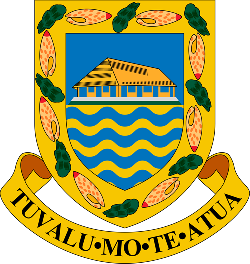Description
Preparation of Third National Communication (TNC) under the UNFCCC
In relation to many SIDS, Tuvalu is extremely vulnerable to climate change and its impacts. Given that communities are very much aware of global warming and its damaging effects, they still continue to fight for their survival and future better livelihood. In every Conference of the Parties (COPs) and other Climate Change dialogues, Tuvalu continuously expressed a common phrase that “if you save Tuvalu, you save the world”. This is the Prime Minister’s impassioned phrasing challenging the parties to meet their obligations under the UNFCCC and its protocols. Ratifying the UNFCCC and its protocols including the Paris Agreement was part of Tuvalu obligation towards addressing climate change impacts.
Generally, Tuvalu signed and ratified the United Nation Framework Convention on Climate Change (UNFCCC) on 8th June,1992 and has also ratified the Kyoto Protocol and the Paris Agreement. Having identifying detrimental environmental concerns such as coastal erosion, salt water intrusion and drought, it built efforts to develop its National Environmental Management Strategy (NEMS) in 1997, the National Adaptation Program of Action (NAPA) in 2007 and other new climate policies and strategies to ensure policy actions are effectively in place as well environmental and socioeconomic safeguards including gender are respectfully realized and implemented.
Outputs
National circumstances.
National GHG inventories.
Measures to facilitate adequate adaptation.
Measures to mitigate climate change.
Other information:
Integration of CC into national development priorities.
Development and transfer of Environmental Sound Technologies (ESTs).
CC research and systematic observation.
Information on research programmes.
Education training and public awareness.
Capacity building,
Information and networking.
Gender and CC.
Constraints and gaps; related financial, technical and capacity needs
Technical assistance.
Compilation, production of communications including the executive summary and its translation.
Stocktaking assessment and institutional arrangement for subsequent NC preparation.
Project Management.
Monitoring and evaluation.
